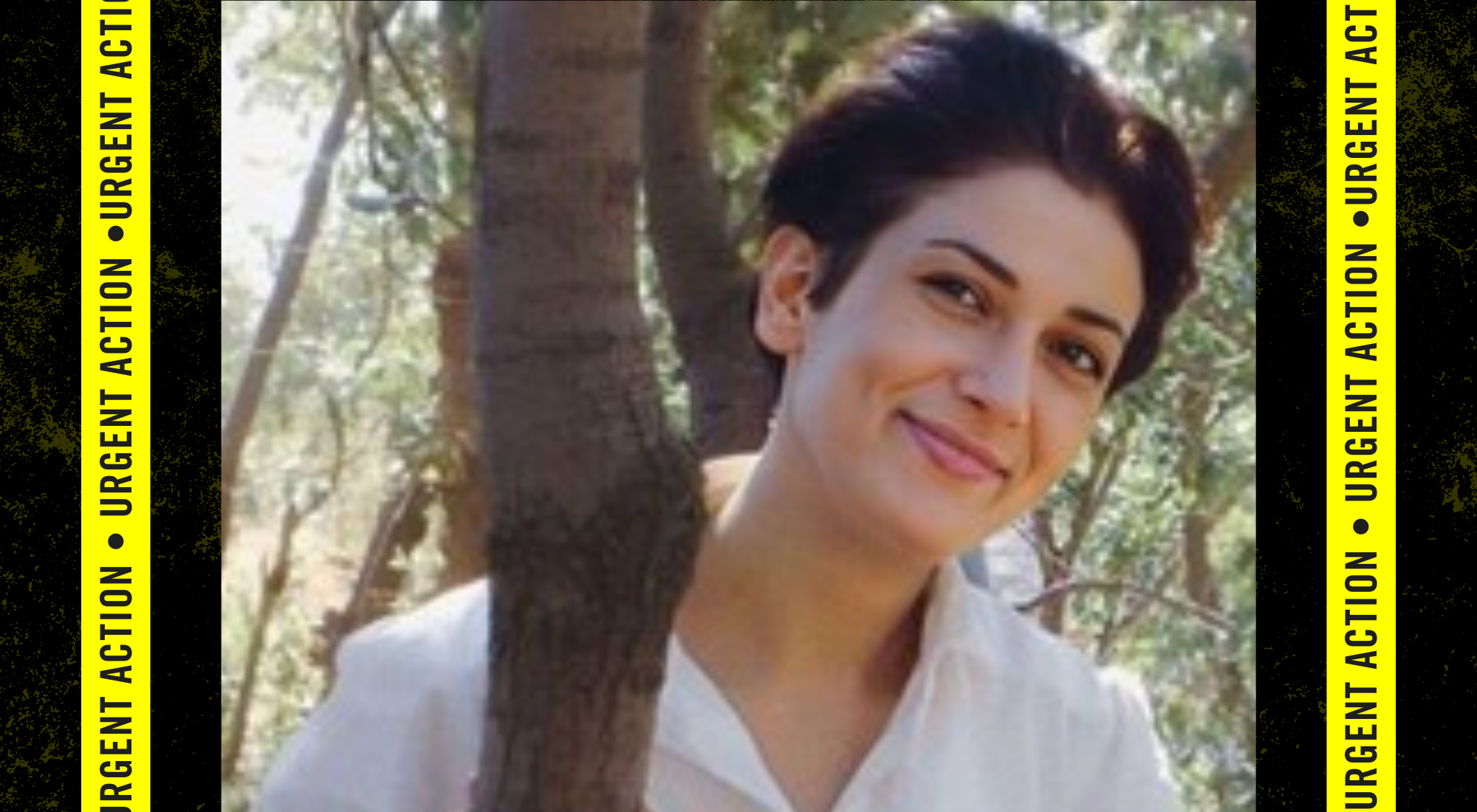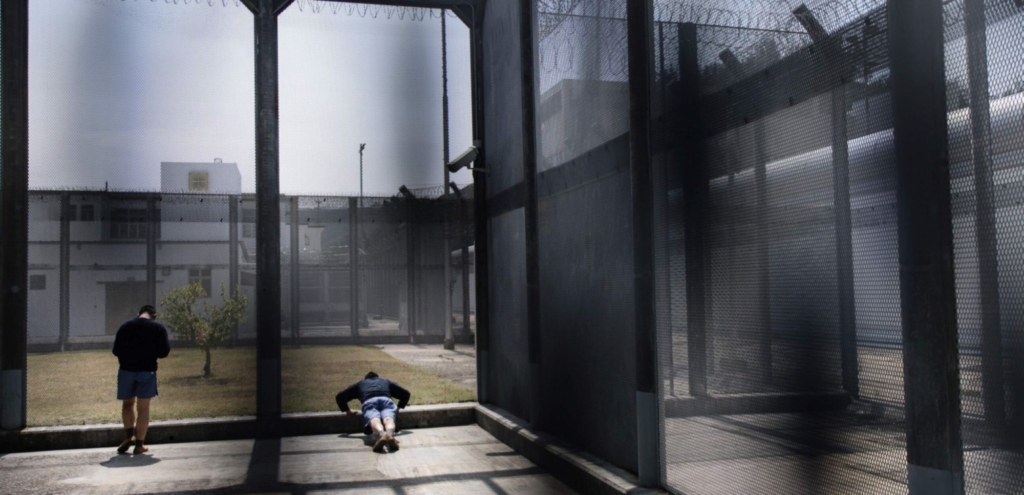Pakhshan Azizi, a humanitarian worker and human rights defender from Iran’s Kurdish minority, is in grave danger of execution. On February 5, 2025, her lawyers learned that Branch Nine of the Supreme Court rejected her request for a judicial review.
In July 2024, a Revolutionary Court sentenced her to death after an unfair trial, based only on her peaceful activism. The Supreme Court upheld the sentence in January 2025. Authorities have ignored her reports of torture and mistreatment. Pakhshan’s life is at risk. Immediate action is needed to stop this injustice.
Here’s what you can do:
Write to the Head of Judiciary urging the Iranian authorities to:
- Immediately halt any plans to execute Pakhshan Azizi.
- Quash her conviction and death sentence, and release her immediately and unconditionally, as she is detained solely for her peaceful humanitarian work and human rights activism.
- Until her release, provide her with proper healthcare and regular access to her family and lawyers. Protect her from further torture and mistreatment.
- Conduct an independent, effective, and impartial investigation into her torture allegations, holding those responsible accountable through fair trials without resorting to the death penalty.
- Immediately establish an official moratorium on executions as a step toward abolishing the death penalty.
Write to:
Head of judiciary, Gholamhossein Mohseni Ejei,
c/o Embassy of Iran to the Union Nations in Geneva
Chemin du Petit-Saconnex 28, 1209
Geneva, Switzerland
Instagram @ejeii.ir
Arbitrary arrest and solitary confinement
Pakhshan Azizi, a 40-year-old humanitarian aid worker and human rights defender from Iran’s Kurdish minority, was arbitrarily arrested by Ministry of Intelligence agents in Tehran on August 4, 2023.
Authorities transferred her to Section 209 of Evin Prison, controlled by the Ministry of Intelligence, where she was held in prolonged solitary confinement for five months. During this time, she was denied access to a lawyer and her family.
Unfair trial and death sentence
Azizi faced trial before Branch 26 of the Revolutionary Court in two sessions on May 28 and June 16, 2024. The court convicted her of “armed rebellion against the state” (baghi) and sentenced her to death. She also received a four-year prison sentence for “membership in an opposition group” (PJAK – Free Life Party of Kurdistan), a national security-related charge.
In January 2025, Branch 39 of the Supreme Court upheld her conviction and death sentence. Without citing evidence, the court claimed she was a member of the Islamic State (IS). On February 6, 2025, her lawyer shared a court ruling screenshot on X (formerly Twitter), highlighting another error.
This time, Branch Nine of the Supreme Court wrongly identified Azizi as a member of the Kurdistan Democratic Party of Iran, again without presenting evidence. Instead, the ruling relied on reports from Tasnim News Agency, affiliated with the Islamic Revolutionary Guards Corps. Her lawyer criticized the repeated errors, arguing that the case was not properly reviewed.
Denial of evidence and false accusation
Azizi has consistently denied membership in any Kurdish opposition group. According to reliable sources, she provided the court with extensive documentation of her humanitarian work. Evidence from the Kurdish Red Crescent and a Swiss humanitarian aid organization confirmed her efforts to support women and children displaced by IS attacks in northeast Syria.
In a July 24, 2024, interview with Iranian media, her lawyer emphasized that Azizi had never engaged in armed operations. Instead, she had traveled to Rojava, Syria, in 2015-2016 as a social worker to help refugees and victims of IS violence. He further stated that the court ruling contained no reference to any armed activities involving her.
Retaliation and additional charges
Authorities have continued to punish Azizi for her human rights activism from prison. Since early July 2024, they have denied her in-person family visits, allowing only phone conversations through a glass partition, known as “cabin visits” in Persian.
In August 2024, officials opened a new case against her for “rioting in prison” due to her activism around Iran’s 2024 presidential elections. In a separate case, a Tehran criminal court sentenced her to six months in prison in October 2024 for protesting with other women in Evin Prison against the increasing use of the death penalty.

Widespread use of the death penalty against ethnic minorities
Following the “Woman, Life, Freedom” uprising, Iranian authorities have increased executions to instill fear and maintain control. This includes targeting ethnic minorities such as Kurds and Baluchis.
Two other Kurdish women, dissident Verisheh Moradi and human rights defender Sharifeh Mohammadi, are also facing execution after Revolutionary Courts convicted them of “armed rebellion against the state” in separate cases. In 2024, Iran continued executing hundreds of people, including protesters, dissidents, and members of ethnic minorities, often after grossly unfair trials.
Amnesty International opposes the death penalty in all cases, calling it a violation of the right to life and an inhumane punishment. Iran’s Kurdish population faces systemic discrimination, limiting access to education, employment, housing, and political office. Underinvestment in Kurdish-populated areas worsens poverty and marginalization. In 2024, security forces killed or injured many unarmed Kurdish cross-border couriers (kulbars) with impunity.
Amnesty International has repeatedly documented Iran’s pattern of arbitrarily arresting and detaining Kurdish individuals based on perceived affiliations with opposition groups, often without credible evidence linking them to internationally recognized crimes.
Please take action as soon as possible until April 30, 2025! The UA will be duly updated should there be the need for further action.




























